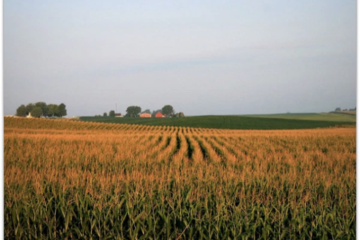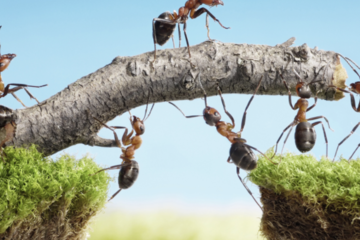Feed
-
New contacts and referralsThe most obvious benefit of networking is to meet potential clients and/or generate referrals which you can then follow up on to hopefully add to your client base. Networking can also help you identify opportunities for partnerships, joint ventures, or new areas of expansion for your business.By: Edwin CastelWednesday, May 12, 2021AGRI-FOOD SYSTEMS+3
:max_bytes(150000):strip_icc()/business-people-talking-in-restaurant-478169561-5b801999c9e77c004f199f67.jpg) No Preview Available
No Preview Available -
Mushroom productionI’ve been planning for some time to add a Mushroom Production Resources Page to Beginning Farmers. Gourmet mushrooms are a high value crop which can be a great addition to a diversified farming operation, especially if they are lucky enough to be situated on land with a decent parcel of hardwood forest (for log production), or willing to invest in the equipment necessarBy: chathuWednesday, May 12, 2021AGRI-FOOD SYSTEMS+5

-
PoliticsPolitics is the set of activities that are associated with the governance of a country, state or an area. It involves making decisions that apply to groups of members It refers to achieving and exercising positions of governance—organized control over a human community, particularly a state. The academic study focusing on just politics, which is therefore more targeted than general political science, is sometimes referred to as politology (not to be confused with politicology, a synonym for political science). In modern nation-states, people often form political parties to represent their ideas. Members of a party often agree to take the same position on many issues and agree to support the same changes to law and the same leaders.[4]By: Edwin CastelWednesday, May 12, 2021AGRI-FOOD SYSTEMS+2
No Preview Available -
Arts and galleryEncyclopaedia Britannica's editors oversee subject areas in which they have extensive knowledge, whether from years of experience gained by working on that content or via study for an advanced degree....By: AmeliyaWednesday, May 12, 2021AGRI-FOOD SYSTEMS+6

-
Can the Implementation of the Water-Energy-Food Nexus Support Economic GrowthWater resources is a crucial environmental good for the function of the human societies and the ecosystems. Moreover, water is an important input for the economy and an indispensable factor for economic growth. Especially in regions that are facing water scarcity, the adoption of water management policies and approaches fostering the sustainable use of resources while promoting economic growth becomes an emerging issue. The Mediterranean region is one of the most vulnerable regions regarding the availability of water resources due to climate change and human activities. The Water-Energy-Food (WEF) Nexus offers an integrated approach analyzing the synergies and trade-offs between the different sectors in order to maximize the efficiency of using the resources, whereas adapting optimum policies and institutional arrangements. The Mediterranean is a region where we observe a large spectrum of issues emanating from water pollution and natural resource degradation to water scarcity, large amounts of food loss and waste and increasing demand for energy and food. Agricultural practices, urban development, demand management for water, and protection of ecosystems, particularly aquatic ecosystems, are areas of particular intervention available to the decision-makers in enhancing availability of water for the various water using sectors. In this context, the current policy note paper aims to address a major issue: how can the implementation of the WEF Nexus support the economic growth in the Mediterranean?By: AmeliyaWednesday, May 12, 2021AGRI-FOOD SYSTEMS+5

-
Research and DevelopmentResearch and Development Why R&D? What is research? And what is development? A layman would ask these questions to begin with. Follow-up questions would be: Does development really require research? Finally people may ask why develop? Why take such a hassle? Let’s copy and do something. The R&D story will end before it begins with this type of attitude. This is pretty similar to the Sri Lankan context which has resulted in lowly performance as a country. What we need to understand is that the innovation through R&D is the major competitive advantage a country could have. According to an address by Dr. A.P.J Abdul Kalam to a gathering of tech students at Mahindra Ecole College in 2015, he claims that there are two sets of countries – developed countries and developing countries. The difference between these two are the competitiveness. Dr. Kalam takes the Global Competitiveness Index as an example. If we look at current rankings, Singapore is ranked one in the index.By: AmeliyaWednesday, May 12, 2021AGRI-FOOD SYSTEMS+5

-
Library scienceLibrary science (often termed library studies, bibliothecography, library economy, and informatics) is an interdisciplinary or multidisciplinary field that applies the practices, perspectives, and tools of management, information technology, education, and other areas to libraries; the collection, organization, preservation, and dissemination of information resources; and the political economy of information. Martin Schrettinger, a Bavarian librarian, coined the discipline within his work (1808–1828) Versuch eines vollständigen Lehrbuchs der Bibliothek-Wissenschaft oder Anleitung zur vollkommenen Geschäftsführung eines Bibliothekars. Rather than classifying information based on nature-oriented elements, as was previously done in his Bavarian library, Schrettinger organized books in alphabetical order.The first American school for library science was founded by Melvil Dewey at Columbia University in 1887.By: Edwin CastelWednesday, May 12, 2021AGRI-FOOD SYSTEMS


Leave a comment